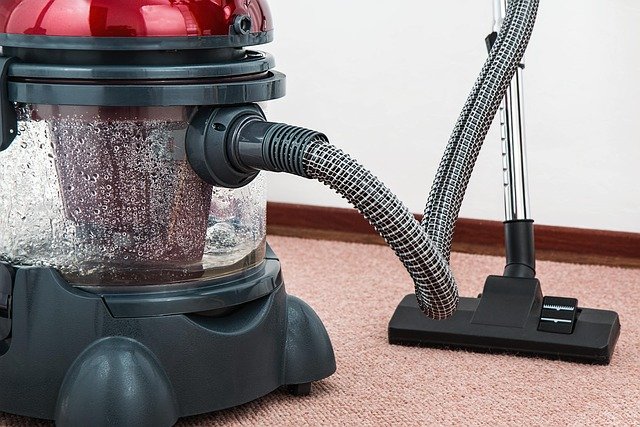Understanding Depression Tests and How They Work
Depression tests are structured assessments designed to help identify symptoms of depression and related mental health concerns. These screening tools provide valuable insights into emotional well-being and can guide individuals toward appropriate support and professional care when needed.

Mental health awareness has grown significantly in recent years, and with it, the availability of tools to assess emotional well-being. Depression tests serve as initial screening instruments that help individuals recognize patterns in their mood, behavior, and thought processes. While these assessments cannot replace professional diagnosis, they offer a starting point for understanding mental health and determining whether further evaluation might be beneficial.
What Are Depression and Anxiety Tests?
Depression and anxiety tests are questionnaires that evaluate symptoms associated with mood disorders and anxiety conditions. These assessments typically include questions about sleep patterns, energy levels, concentration, feelings of hopelessness, and physical symptoms like restlessness or fatigue. Many standardized tools exist, including the PHQ-9 (Patient Health Questionnaire) and GAD-7 (Generalized Anxiety Disorder scale), which are commonly used in clinical settings. The questions are designed to measure symptom frequency and severity over a specific time period, usually the past two weeks. Results provide a score that indicates whether symptoms fall within mild, moderate, or severe ranges, helping individuals and healthcare providers understand the level of concern.
Depression Tests for Teens
Adolescents face unique developmental challenges that can affect their mental health, making age-appropriate screening tools essential. Depression tests for teens are specifically designed to address issues relevant to younger populations, including academic stress, peer relationships, family dynamics, and identity development. These assessments often include questions about school performance, social withdrawal, changes in eating or sleeping habits, and risky behaviors. The PHQ-A (PHQ for Adolescents) is one commonly used tool that adapts adult screening questions for teenage experiences. Parents, teachers, and school counselors may notice warning signs that prompt testing, such as declining grades, loss of interest in activities, or increased irritability. Early identification through appropriate screening can connect teens with support services before symptoms worsen.
Understanding Stress Anxiety Depression Tests
Many screening tools assess multiple mental health dimensions simultaneously, recognizing that stress, anxiety, and depression often coexist. Stress anxiety depression tests evaluate how these interconnected conditions manifest in daily life. The DASS-21 (Depression Anxiety Stress Scales) is a widely recognized instrument that measures all three states through 21 questions, with seven items dedicated to each condition. This comprehensive approach helps differentiate between overlapping symptoms and provides a clearer picture of overall mental health. Chronic stress can trigger or worsen both anxiety and depression, so understanding the relationship between these factors is crucial for effective intervention. These multi-dimensional assessments are particularly useful for individuals experiencing complex emotional challenges that don’t fit neatly into a single diagnostic category.
Free Depression Test Options
Accessibility is an important consideration for mental health screening, and numerous free depression tests are available online and through healthcare providers. Reputable organizations such as Mental Health America, the Anxiety and Depression Association of America, and Psychology Today offer validated screening tools at no cost. Many primary care offices and college health centers provide free screening during routine visits or designated mental health awareness events. Online tests typically take five to fifteen minutes to complete and provide immediate preliminary results with recommendations for next steps. However, it’s essential to use tests from credible sources, as not all online assessments are scientifically validated. Free screening tools democratize access to mental health evaluation, particularly for individuals who face financial barriers or lack immediate access to professional services.
How Accurate Are Depression Screening Tools?
Depression tests are valuable screening instruments, but they have limitations that users should understand. These assessments measure self-reported symptoms at a specific moment in time and cannot account for all factors affecting mental health. Cultural differences, reading comprehension, and personal interpretation of questions can influence results. False positives and false negatives do occur, which is why screening tools are designed to identify potential concerns rather than provide definitive diagnoses. Professional evaluation by a licensed mental health provider remains the gold standard for accurate diagnosis. Clinicians use screening results as one piece of information alongside clinical interviews, medical history, and sometimes additional testing. The sensitivity and specificity of validated tools like the PHQ-9 are generally high, making them reliable indicators that warrant further investigation when scores suggest significant symptoms.
Taking Action After Screening Results
Receiving screening results that indicate possible depression can feel overwhelming, but it represents an important first step toward better mental health. If a depression test suggests significant symptoms, scheduling an appointment with a healthcare provider should be the next priority. Primary care physicians, psychiatrists, psychologists, and licensed counselors can conduct comprehensive evaluations and discuss treatment options. Treatment approaches may include psychotherapy, medication, lifestyle modifications, or a combination of interventions tailored to individual needs. Many communities offer mental health resources through local clinics, employee assistance programs, and telehealth services that increase accessibility. Support groups and peer-led organizations provide additional avenues for connection and understanding. Remember that seeking help is a sign of strength, not weakness, and effective treatments are available for depression and related conditions.
This article is for informational purposes only and should not be considered medical advice. Please consult a qualified healthcare professional for personalized guidance and treatment.
Depression screening tools play a vital role in identifying mental health concerns and connecting individuals with appropriate care. Whether using a depression and anxiety test, a teen-specific assessment, a comprehensive stress anxiety depression test, or a free depression test available online, these instruments provide valuable insights into emotional well-being. While screening results should always be followed up with professional evaluation, the accessibility and ease of these tools make them powerful resources for anyone concerned about their mental health or that of a loved one.




